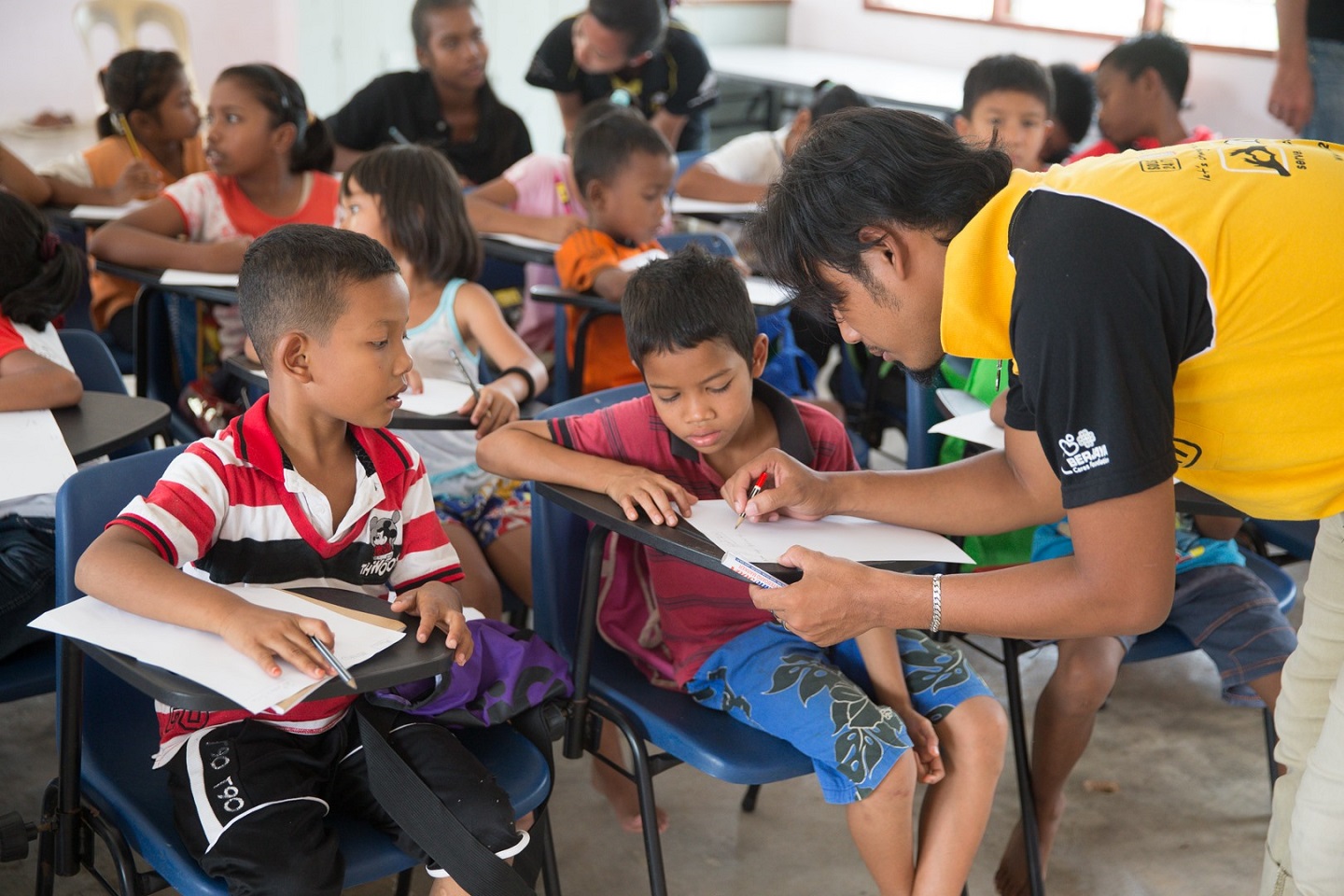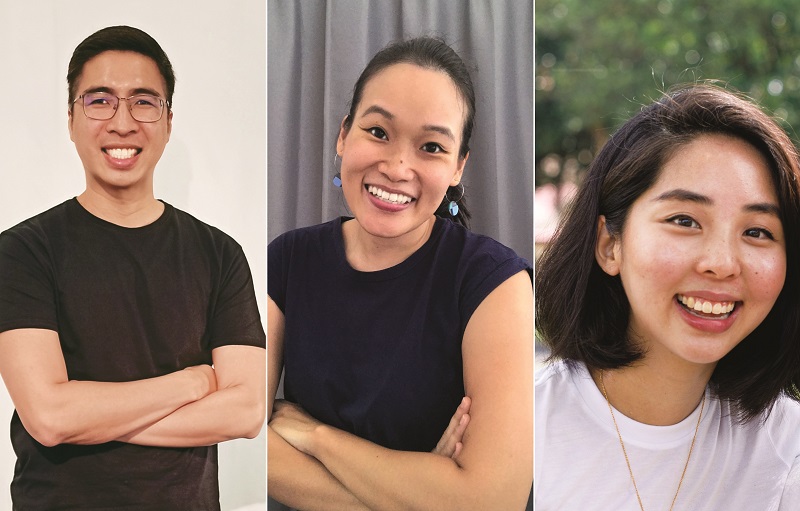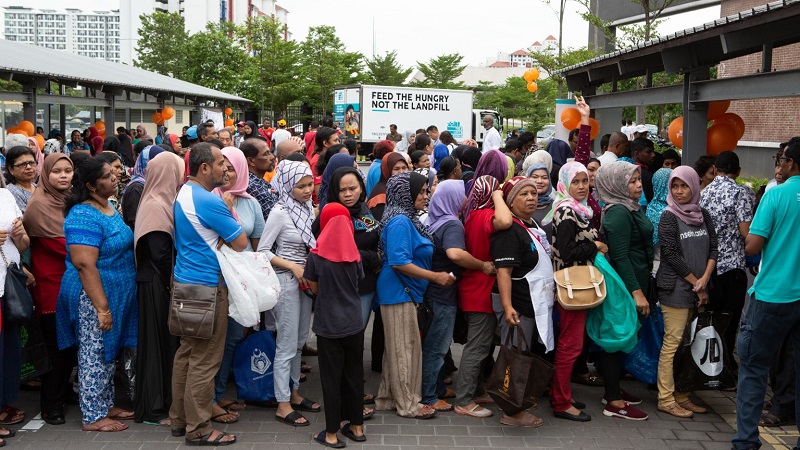
SOLS 24/7 is a humanitarian organisation that is committed to serving, educating and empowering poor and underserved communities (Photo: SOLS 24/7)
For Deborah Chan and her husband Terence Ooi, social work is a calling. Several years ago, they left their corporate jobs in Kuala Lumpur and moved to Cambodia, where they built literacy centres and ran a volunteer programme. Subsequently, they went to Sabah to build hostels with Starfish Project. Access to these opportunities came about because of the network of contacts they had and because they were already tuned into the social work scene.
This led the couple to consider how those not “in the network”, or for whom social work is not a calling, would be able to help communities in need. “This realisation actually came from personal experience,” Chan says via video call from her base in Kota Kinabalu. “A high school student who volunteered with us wanted to do more, but she had no idea how to access the communities who needed assistance.”
To bridge this gap, Chan, her husband and a friend, Elisa Khong, co-founded Wiki Impact, a collaborative platform for citizen researchers and changemakers (organisations, government bodies, associations, groups, social enterprises and non-governmental organisations) to access valuable data that will help them tackle social issues in the country. A platform for everyday people to collaborate and learn more about social issues that matter to our nation, Wiki Impact provides a stronger narrative around social issues that plague the country and encourage more conversations, so awareness of these issues is never far from our collective consciousness.
wikiimpact_team.jpg

“If I am to define us, we are a research company focused on social issues,” says Chan. “All the stories and information that we put forward are all evidence- and data-based. What we aren’t is a think tank, research institute or data collection agency. We don’t push for policy changes. We are absolutely neutral, and should policy change occur because of the research we’ve done, great — but it’s not a priority. We want to humanise and narrate social issues in a way that it’s in everyday conversations, so its part of the fabric of society. Social issues don’t need to be just for those with a calling, but for anyone to consider, at any time. We are storytellers of social issues, which is where the bulk of our efforts goes into.”
The name Wiki Impact came about during the trio’s extensive research into what would be most appropriate. There were many parallels between what they wanted to do and what online encyclopaedia Wikipedia was doing — information is provided free of charge, it is open-collaborative and relies on volunteer contributors. However, it has no relationship with the online resource provider. “The Wiki Foundation doesn’t hold on to the brand name too tightly,” Chan grins. “There are other organisations that use the Wiki name as well, and for the same reason as us! We are all about getting information from different sources and providing it to people who want it in easy-to-digest morsels.”
The body of research that Wiki Impact’s team has digested has been regurgitated on two platforms for use — wikiimpact.com and its Instagram account. Combining white papers, graphics, videos and short articles, the qualitative and quantitative information that Wiki Impact presents is designed to inspire curiosity, encourage conversation and even answer questions. Its very lean team is assisted by a huge group of volunteers and interns to produce the research work.
“We have several calls to action and end goals that set us apart,” she says. “The big goal here is raising awareness and igniting a sense of consciousness — this is what’s happening, and this is the research to back it up. The younger generation is a key target as they are up for change and are willing to throw their support behind a cause. We also want to bridge the gap between changemakers and people doing something on the ground — by providing relevant data and proper information, they can make strategic and informed decisions.”
An example is SOLS 24/7 — a humanitarian organisation that is committed to serving, educating and empowering poor and underserved communities — which obtains crucial information from Wiki Impact to do the work that it does. “They use the data to help them allocate their resources to where it is most needed,” says Chan. “This is important to me because in my work building schools and hostels, I realised the lack of proper data on how many students are actually missing out on school, or which kampungs or districts they come from. In addition — what else do these folks need? I needed this information to channel aid more efficiently. So, this is the gap we are trying to bridge for changemakers now. There are enough people with the resources to help, but if they are not presented with compelling evidence, the money will just go elsewhere.”
the_lost_food_project.jpg

Chan was in sustainable tourism and Ooi worked for Says.com, so the dovetailing of their skills was a perfect fit for the community development work they wanted to do. Their firstborn, now eight, went with them to Cambodia as a one-year-old, while their younger child was born in Sabah. “We always knew that the assignment with Starfish would be transient, but the impact of the work was permanent,” she says, recalling harrowing scenes of extreme poverty faced by students who had left their homes in the interiors to complete their schooling. “I was with Starfish for four years building hostels, and then we handed these over to local partners to manage — this was always the aim. The grassroots experience I brought to Wiki Impact was invaluable as it gave me both a big-picture and an on-the-ground perspective — it showcased how much more changemakers can do when supported with the right kind of data and information.”
Wiki Impact is currently investor-funded and after one year of data collection, it is almost ready to embark on its second phase — providing consultancy services to companies eager to expand their corporate social responsibility (CSR) initiatives in a meaningful way. “There is always going to be a place for the one-time initiatives like building a home or sponsoring a meal for the needy, but for companies that want to embark on a more long-term and sustainable CSR programme, the kind of data we provide is key to helping them make the right decisions,” says Chan. “This is also how Wiki Impact is able to become a sustainable business, as we would charge a nominal fee for our consultation services.”
A major thrust for Wiki Impact now is its Poverty Project, which is a good way to examine how the organisation lays out its information and calls to action. Four clear sections outline the issues — maps to chart underserved communities in Malaysia and the changemakers who are involved in reaching them; bite-sized stories of real data to voice for the underserved; an overview of poverty with the big questions posed to knowledge experts and poverty changemakers; and how the organisation is communicating these complex social issues to millennials and Gen Zs in a relevant and interactive way.
The poverty map is particularly compelling as it provides a big-picture view of how we are faring as a nation and where the poorer communities are based, while the changemakers map outlines the projects and initiatives taking place around the country to help alleviate poverty. For those who want more information, enlarge the map and hover over the pins to access details on the projects that are already taking place — so you know what has happened and what work still needs to be done.
Recognising the lack of data on period poverty (defined as a lack of access to sanitary products and safe, hygienic spaces in which to use them) in Malaysia, Wiki Impact is gearing up to launch a micro-site on the topic as an extension of the work it is already doing on poverty. “In the future, we hope to build more knowledge suites like what we’ve done with the Poverty Project,” says Chan. “The project itself is quite a mammoth one, and we’d like to become a knowledge hub for larger social issues going on in the country — food security, for example, or even gender-related issues.”
Rare is the NGO that says no to direct funding — instead, what Chan seeks more of is collaborations with changemakers on the ground so they can be given the mileage they deserve, and with businesses so that their CSR programmes can bring more meaningful and sustainable change. “There will never be a shortage of problems to solve. So, what we want to build is an ecosystem that would allow people who want to help to always have a way to do it. Wiki Impact was born out of the pandemic and it can be run from anywhere, so there are huge opportunities for it to grow.”
This article first appeared on Mar 22, 2021 in The Edge Malaysia.


